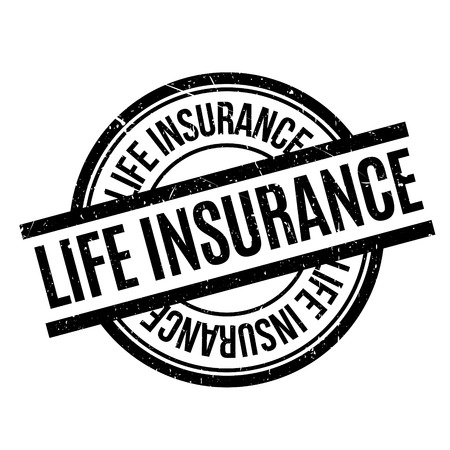Understanding Commercial Auto Insurance
If your small business uses any vehicles—whether its one delivery van or a fleet of service trucks—commercial auto insurance is something you cant afford to overlook. In plain English, commercial auto insurance is a type of coverage designed specifically for vehicles used for business purposes. This is different from personal auto insurance, which only covers everyday driving like commuting or running personal errands. Who needs it? Any small business owner whose employees drive company-owned vehicles, use their own cars for work tasks, or even rent vehicles as part of their job needs commercial auto insurance. It’s especially critical in the U.S., where liability laws can put your business at risk if an accident happens on the job. Not only does this coverage protect your vehicles, but it also shields your business from costly lawsuits, property damage claims, and medical expenses that could arise from an accident. In short, commercial auto insurance isn’t just a good idea—it’s often legally required and essential for keeping your business running smoothly when the unexpected happens.
Assessing Your Business’s Coverage Needs
Before selecting a commercial auto insurance policy, its crucial to take a close look at your small business’s specific needs. The right coverage depends on several factors, including the types of vehicles you use, how you use them, and the unique risks associated with your operations. Here’s how you can assess these elements to find insurance that actually fits your business.
Evaluate Your Vehicles
Start by making a detailed list of all vehicles used for business purposes—whether they’re owned, leased, rented, or even employee-owned (used for work tasks). Different vehicles can require different kinds of coverage. For example, insuring a delivery van is not the same as covering a personal sedan used occasionally for client meetings.
| Vehicle Type | Typical Use | Potential Coverage Needed |
|---|---|---|
| Cargo Vans/Trucks | Deliveries & hauling equipment | Higher liability limits; cargo coverage |
| Sedans/SUVs | Sales calls & site visits | Basic liability; non-owned vehicle coverage if employees drive their own cars |
| Specialty Vehicles (e.g., food trucks) | Mobile operations | Customized policies for equipment and liability |
Determine Driving Purposes
The way your vehicles are used impacts the level and kind of risk. Are your employees driving long distances across state lines? Do they carry valuable equipment or passengers? Clearly outline each scenario where your business uses a vehicle. This helps in choosing add-ons like comprehensive coverage or hired/non-owned auto insurance.
Questions to Ask Yourself:
- How often are vehicles driven for business?
- What do they transport—people, goods, tools?
- Are vehicles parked in high-risk areas?
- Do employees use personal cars for work-related tasks?
Identify and Understand Risks
No two small businesses have identical risk profiles. Consider industry-specific risks (like food delivery or construction), local accident rates, weather patterns in your area, and theft or vandalism risks. The goal is to match your coverage limits and policy types to the real-world threats your business faces.
Common Commercial Auto Risks & Solutions Table:
| Risk Factor | Example Scenario | Suggested Coverage Option |
|---|---|---|
| High Mileage/Long Routes | Frequent out-of-town deliveries | Bodily injury and property damage liability; higher limits on collision/comprehensive coverage |
| Cargo Theft or Damage | Theft of tools from a contractors van | Cargo or inland marine insurance add-on |
| Employee-Owned Vehicles Used for Work | An employee drives their own car to deliver products | Hired and non-owned auto insurance (HNOA) |
| Seasonal/Temporary Use Vehicles | A landscaping company with extra trucks during summer months only | Flexible policies with adjustable coverage periods |
The bottom line: Accurately assessing your vehicles, how you use them, and the risks involved helps ensure you don’t overpay for unnecessary extras—or worse, get caught underinsured when an accident happens. Take time to review these details before shopping around for quotes or talking to an agent.

3. Types of Commercial Auto Coverage
When you’re choosing commercial auto insurance for your small business, it’s important to understand the different types of coverage available. Each type protects your business in a unique way, so picking the right combination is key to staying protected and compliant.
Liability Coverage
This is the most basic and required type of commercial auto insurance. Liability coverage helps pay for injuries or property damage to others if you or one of your employees causes an accident while driving a company vehicle. It’s split into two parts: bodily injury liability (covers medical costs for injured parties) and property damage liability (covers repairs to other vehicles or property). Without this, your business could be on the hook for expensive lawsuits or claims.
Comprehensive Coverage
Comprehensive insurance isn’t about collisions—it covers damage to your company vehicles from things like theft, vandalism, fire, hail, or even hitting an animal. If you rely on your vehicles for daily operations, this coverage can save you big bucks when unexpected events happen that are out of your control.
Collision Coverage
This kicks in when your business vehicle is damaged in an accident with another vehicle or object, regardless of who’s at fault. Whether your driver backs into a pole or gets hit in a parking lot, collision coverage helps cover repair or replacement costs so you can get back on the road faster.
Uninsured and Underinsured Motorist Coverage
If one of your vehicles gets hit by someone who doesn’t have enough (or any) insurance, this coverage protects your business from having to pay out-of-pocket for damages or injuries. It’s especially valuable because not everyone follows the rules—and you shouldn’t have to pay for someone else’s mistake.
What These Coverages Mean for Your Business
Picking the right mix of these commercial auto coverages helps protect your finances, keeps your vehicles running, and ensures you meet legal requirements. Think about how often you use company cars, what they’re used for, and where they’re driven—then build a policy that fits those needs. Remember: being underinsured can cost more than paying for comprehensive protection upfront.
4. Determining Policy Limits and Deductibles
When choosing commercial auto insurance for your small business, figuring out the right policy limits and deductibles is essential. These two factors directly affect both the level of financial protection you have and the overall cost of your insurance. Here’s a straightforward guide to help you balance adequate coverage with your business budget.
Understanding Policy Limits
Policy limits are the maximum amounts your insurance company will pay out for a covered claim. It’s important to choose limits that reflect the actual risks your vehicles face on the road, while also meeting any state or client requirements. For example, if you operate in a high-traffic area or transport valuable goods, higher limits may be necessary.
| Type of Vehicle Use | Recommended Limit (Per Accident) |
|---|---|
| Local Deliveries | $500,000 – $1,000,000 |
| Interstate Travel | $1,000,000+ |
| Transporting Passengers | $1,500,000+ |
Choosing the Right Deductible
The deductible is the amount you’ll pay out-of-pocket before your insurance kicks in after a claim. Selecting a higher deductible usually lowers your monthly premium, but it means more upfront costs if an accident happens. On the other hand, a lower deductible results in higher premiums but less financial burden at claim time. Consider your business’s cash flow and risk tolerance when making this decision.
Deductible Comparison Table
| Deductible Amount | Monthly Premium Impact |
|---|---|
| $500 | Higher Premium |
| $1,000 | Moderate Premium |
| $2,500+ | Lower Premium |
Tips for Balancing Protection and Budget
- Assess the value and usage of each vehicle in your fleet.
- Check legal minimums required by your state or industry contracts.
- Estimate potential out-of-pocket costs for different deductible levels.
- Select limits that protect against worst-case scenarios without over-insuring.
A thoughtful approach to setting policy limits and deductibles ensures your small business gets the protection it needs without straining your finances. Remember to reassess these choices as your business grows or changes to stay properly covered.
5. Comparing Insurers and Policies
Choosing the right commercial auto insurance isn’t just about picking the first quote you see. To make a smart choice for your small business, you need to shop around, understand what different quotes mean, and thoroughly vet each insurance provider. Here’s how U.S. small business owners can approach this process effectively:
Shop Around for Multiple Quotes
Don’t settle for the first offer. Request quotes from at least three different insurance companies. Rates and coverage options can vary widely—even for similar policies—so getting several quotes helps ensure you’re not overpaying or missing out on important features.
Understand What Each Quote Includes
When comparing quotes, look beyond just the premium. Review deductibles, policy limits, included coverages (like liability, collision, or comprehensive), and any exclusions. Ask questions if anything is unclear; reputable insurers will explain details in plain English.
Vet Insurance Providers Carefully
Look for insurance carriers that specialize in commercial auto coverage and have a strong reputation with American small businesses. Check their financial ratings through agencies like AM Best or Standard & Poor’s—this shows if they’re financially stable enough to pay claims. Read customer reviews on sites like Trustpilot or Better Business Bureau (BBB) for real-world feedback on claim processes and customer service.
Check for Local Experience
U.S.-based insurers familiar with your state’s laws and regulations can better tailor policies to your needs. They’ll also be more responsive if you ever need support after an accident.
Ask About Discounts and Extras
Many insurers offer discounts for things like safe driving records, bundling multiple policies (such as combining general liability with auto), or installing GPS tracking devices in your vehicles. Don’t hesitate to ask what savings you might qualify for—it never hurts to ask!
Final Thoughts
Take your time comparing insurers and policies before making a decision. A little extra homework upfront can save your business money and headaches down the road by ensuring you’re covered by a reliable company with the right protection for your specific needs.
6. Common Mistakes and How to Avoid Them
Choosing the right commercial auto insurance can be tricky, especially for small business owners who are often juggling multiple responsibilities. Many fall into common traps that can cost them time and money down the road. Here’s a breakdown of typical mistakes and how you can steer clear of them:
Underestimating Coverage Needs
One of the biggest pitfalls is opting for the minimum coverage just to save on premiums. While this might seem budget-friendly at first, it can leave your business exposed to significant financial risks after an accident or damage. Remember, commercial vehicles face unique hazards compared to personal cars—think about cargo, employee drivers, and specialized equipment.
Ignoring Policy Exclusions
Not all policies cover every scenario. It’s easy to overlook the fine print, but failing to understand what’s excluded from your policy can lead to unpleasant surprises when you file a claim. Always ask your agent for clarification on exclusions so you know exactly what is and isn’t covered.
Failing to Update Your Policy
Your business evolves—maybe you’ve added new vehicles, changed routes, or hired more drivers. If you don’t update your policy accordingly, you risk being underinsured or even having claims denied. Make it a habit to review your coverage regularly, especially after major business changes.
Overlooking Discounts and Bundles
Many insurance providers offer discounts for things like safe driving records, multiple vehicle policies, or bundling with other types of business insurance (like general liability). Don’t miss out on potential savings—ask about all available discounts when shopping for coverage.
How to Make Smart Coverage Decisions
- Work with an experienced agent who understands commercial auto insurance for small businesses.
- Assess your specific risks—consider vehicle types, how they’re used, and who will be driving.
- Compare quotes from several insurers, looking beyond just the price tag to overall value and service reputation.
- Read the policy details carefully and ask questions until you’re confident in your choices.
Avoiding these mistakes will help ensure your small business is properly protected on the road—and that you’re getting the best value for your insurance dollars.
7. Getting the Most Value from Your Insurance
Finding commercial auto insurance that fits your small business is only part of the equation—you also want to make sure you’re getting the best bang for your buck. Here are some practical ways to keep your premiums manageable and maximize your coverage.
Shop Around and Compare Quotes
Don’t settle for the first policy you find. Different insurers offer different rates and discounts. Take time to compare quotes from several providers so you can spot the best value for your specific needs.
Bundle Policies for Bigger Savings
If your business needs other types of insurance, such as general liability or property insurance, consider bundling them with your commercial auto policy. Many companies offer multi-policy discounts that could lead to significant savings—and it’s easier to manage all your coverages under one roof.
Ask About Small Business Discounts
Some insurance companies offer special discounts tailored to small businesses, especially if you have a good driving record or use safety features in your vehicles. Don’t be shy about asking what’s available—you might qualify for more than you expect.
Work with an Agent Who Understands Small Business
An agent who knows the ins and outs of small business operations can help you customize coverage, explain the fine print, and find hidden savings. They’ll understand the risks you face day-to-day and recommend options that balance cost with protection.
Keep Premiums in Check Over Time
Review your policy annually and update it as your business grows or changes. Removing unneeded coverage, raising deductibles, or updating vehicle lists can help keep premiums under control while still ensuring proper protection.
By staying proactive—shopping around, bundling policies, asking about discounts, and working with a knowledgeable agent—you can secure commercial auto insurance that protects your business without breaking the bank.


